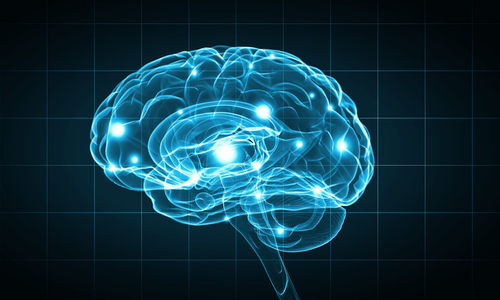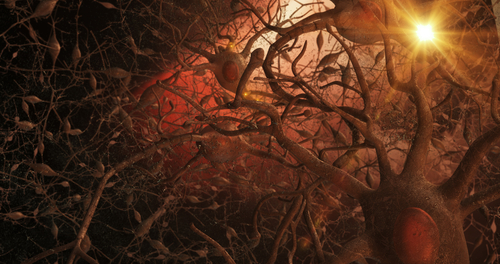The moment of death doesn’t end your awareness. Your brain fully registers what’s happening even as your heart stops beating. Scientists now confirm you remain conscious after death, aware of your passing. You lie there as doctors pronounce you clinically dead. But somewhere deep in your mind, you stay present, witnessing your passing. It sounds like fiction. Yet groundbreaking researchers reveal this scenario represents science, not fantasy.
The Gray Area Between Life and Death

For centuries, we’ve thought of death as definitive. You live or you don’t. But that line blurs into a gradient where life slowly fades rather than abruptly stops. ‘The idea that we have that there’s a clear line that delineates life from death is a social convention. It is not grounded in the realities that exist in the human body,’ explains a leading researcher in cardiopulmonary resuscitation. This understanding has profound implications for how long we remain conscious after death. Simply put, death resembles a sunset more than a light switch. Your body unfolds the process gradually over hours.
Your Brain After Death: Still in the Game

So what’s happening in your mind as death approaches? Traditional teachings tell you that your brain dies after 5-10 minutes without oxygen. However, scientists have now disproven this belief. To illustrate this point, in 2019, scientists performed an experiment that defied conventional wisdom. They took pig brains from a slaughterhouse four hours after the animals died and brought them back to life.
Using a specialized cocktail of brain-preserving drugs, the researchers restored function to these supposedly “dead” brains 10 to 14 hours after death. The brains showed no signs of damage whatsoever. They administered drugs specifically to prevent these brains from potentially regaining consciousness. Let that sink in for a moment.
Read More: Man Who Was Drowning For 15 Minutes Reveals ‘Ultimate Truth’ About Near-Death Experiences
“I Saw Everything”: Consciousness After the Flatline

Not surprisingly, these findings have profound implications for how we understand consciousness after the heart stops. Many scientists dismissed stories about individuals floating above their bodies during near-death experiences. Nevertheless, researchers now take these accounts very seriously. For instance, a research team spanning 25+ hospitals with 33 investigators uncovered something unexpected. About 15% of people resuscitated after cardiac arrest remembered vivid details from when they were technically dead.
These memories don’t appear as vague impressions. People watch medical teams working on their bodies. They recall specific conversations and procedures with precise accuracy. Many relive interactions with others, feeling their own emotions and those of people they affected, “thousands of times stronger.” Research teams applied advanced AI and machine learning to analyze thousands of cases, confirming with “98% mathematical certainty” that these experiences differ entirely from dreams or hallucinations.
The Brain’s Final Fireworks Show

What’s more, when you die, your brain doesn’t fade quietly. Instead, it stages one last spectacular show. Specifically, studies reveal a fascinating pattern during death. “As people and animals die, the brain flatlines. Most of the function is lost. But then suddenly either five minutes before or up to five minutes after, there is suddenly a surge of brain electrical activity of a very high frequency that lasts for a very short period of time.” This surge likely creates the neurological basis for remaining conscious after death, delivering a final burst of intense awareness before everything ends.
Research confirms something remarkable: “Conscious awareness appears to have continued for up to three minutes into the period when the heart wasn’t beating, even though the brain typically shuts down within 20-30 seconds after the heart has stopped.” While three minutes sounds brief, when you experience your death, it stretches into an eternity.
Your Cells Don’t Know You’re Dead Yet

Beyond the brain, another surprising aspect emerges: when you die, your body doesn’t receive the news all at once. According to Dr. Peter Noble, a microbiology professor at the University of Washington, cells continue functioning after clinical death. His research with mice and zebrafish revealed something unexpected. Some cells don’t just linger after death. On the contrary, they actively continue their biological processes and even multiply hours after clinical death occurs.
The research proves our cells show far more resilience than anyone thought possible. Your body resembles a vast city. Even after the power grid fails, some neighborhoods keep their lights on for hours, unaware of the central collapse.
Reimagining Death: What This Means for Medicine

According to experts in the field, “There are millions of people who would be saved if our idea of life and death was challenged. Instead of thinking of it as a binary end, that we recognize that we can salvage it even after it’s happened.” Consider every time you hear about someone declared dead at an accident scene. What if that pronouncement came too soon?
Beyond medicine, these findings open deep questions about consciousness itself. Does your awareness simply emerge from brain chemistry, or something more? One researcher challenges conventional thinking: “A single brain cell normally produces proteins. So how can a brain cell that produces proteins suddenly lead to this incredible phenomenon of thought and awareness?”
The Ultimate Life Review

Perhaps the most profound aspect of this research on remaining conscious after death doesn’t concern death at all. Rather, it reveals how you might live differently knowing what awaits you. Above all, these death experiences consistently emphasize one thing: how we treat others. Not religious rituals, wealth, or status. During life reviews, people relive their actions and their impact on others. They feel both sides of every interaction with heightened intensity.
That sharp word to a coworker? That kind gesture to a stranger? In death, you experience both sides of those exchanges with crystal clarity, the emotional intensity amplified thousands of times stronger than in life. In conclusion, these discoveries challenge our most fundamental assumptions, whether you find them comforting or unsettling. The possibility of being conscious after death transforms our understanding of life’s end.
Read More: Frozen in Time: The First Cryogenically Preserved Man Still Awaits Revival

